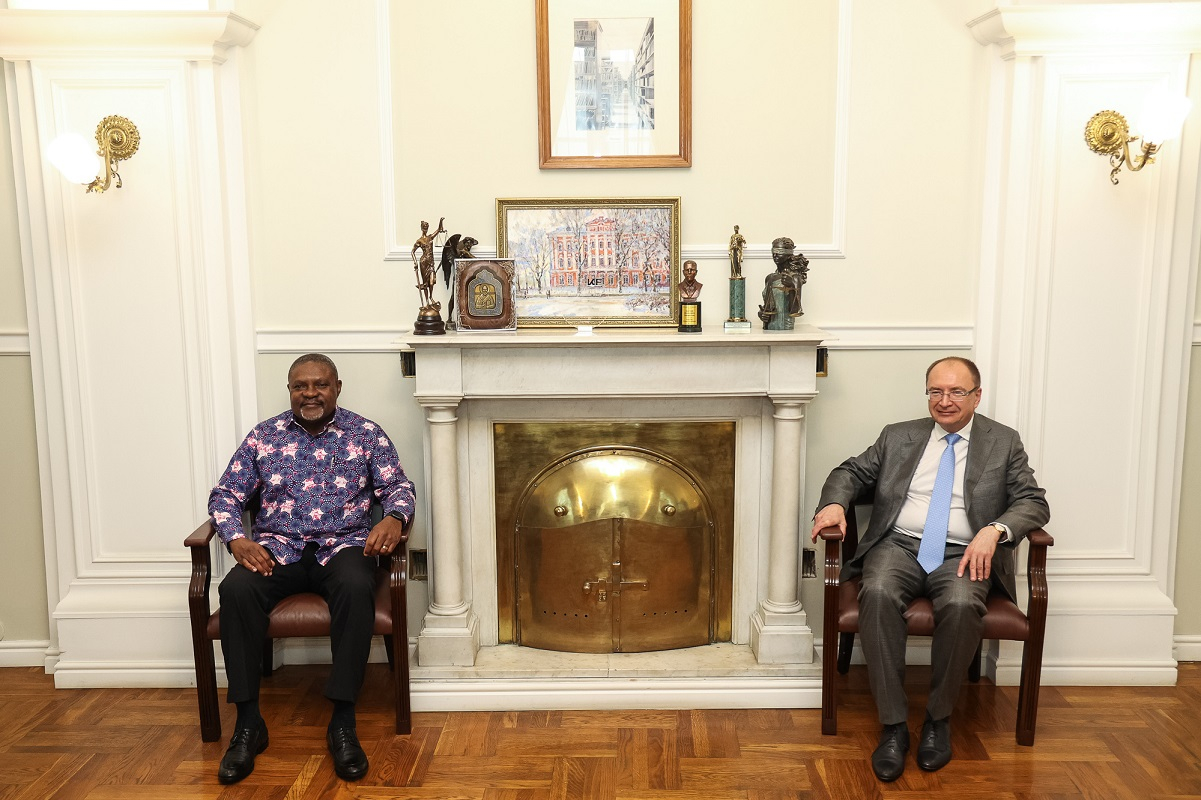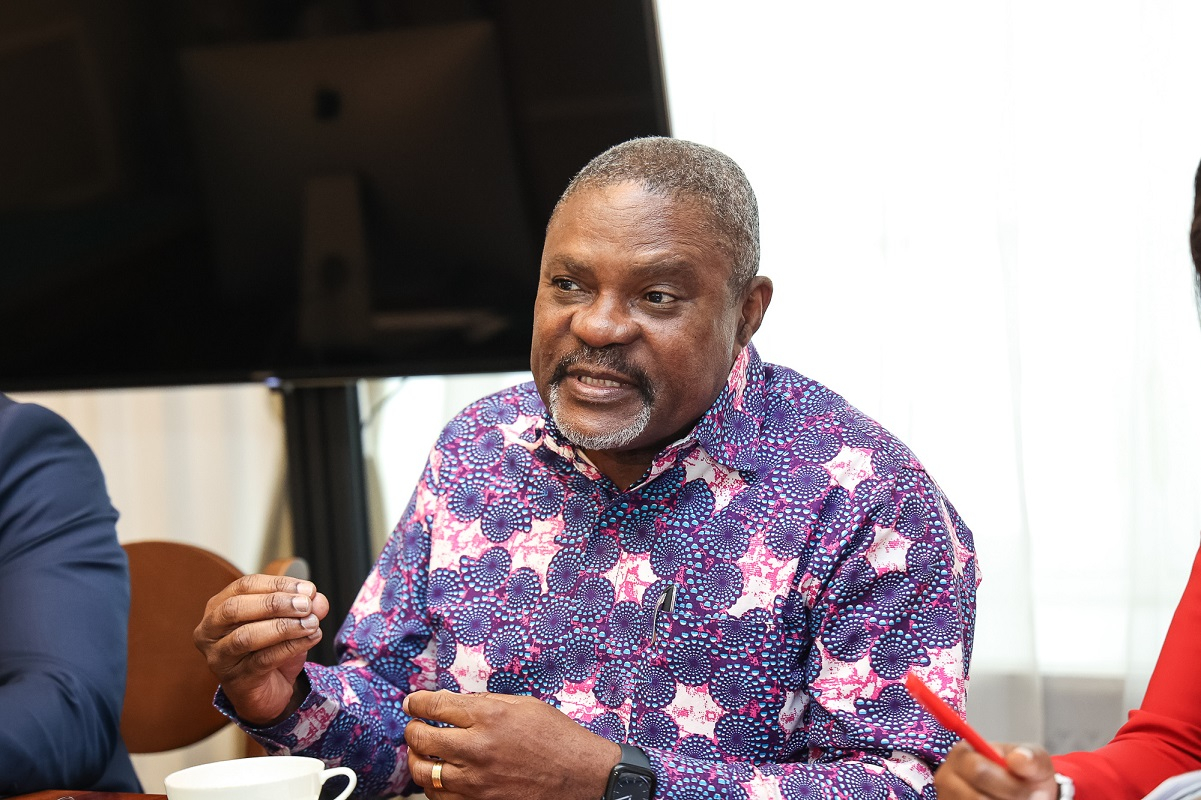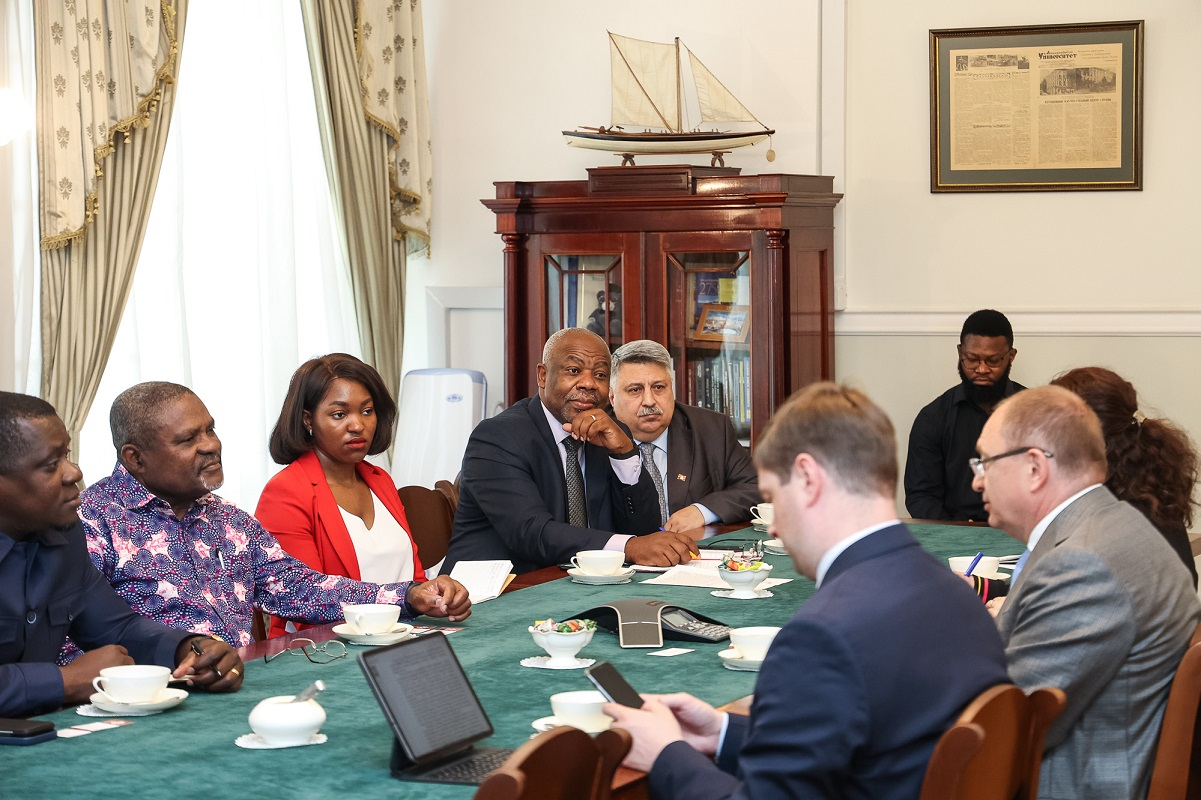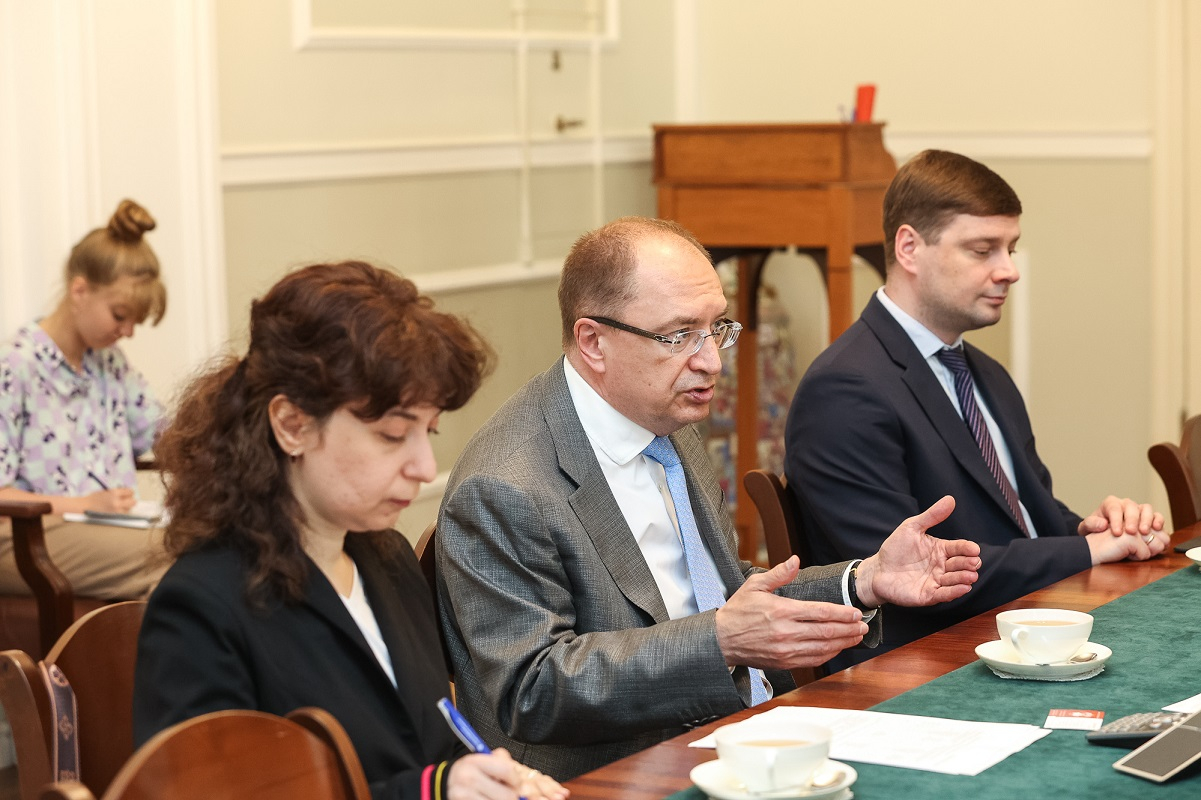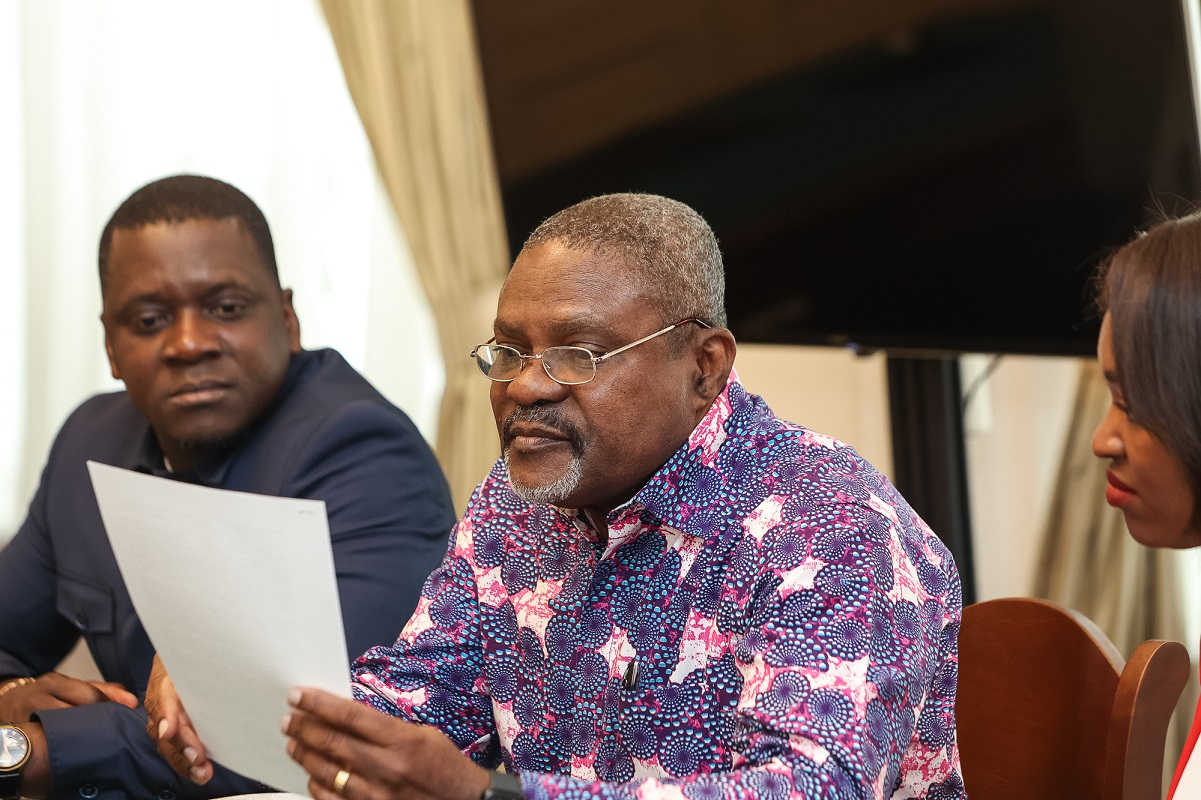Visit of the Ambassador Extraordinary and Plenipotentiary of the Republic of Angola to St Petersburg University
Ambassador Extraordinary and Plenipotentiary of the Republic of Angola Augusto da Silva Cunha has visited St Petersburg University. The parties discussed the issues relating to establishing cooperation and academic interaction between the two countries. They also discussed opportunities to sign agreements between St Petersburg University and leading educational organisations in Angola.
Nikolay Kropachev, Rector of St Petersburg University, addressed the guests with a welcoming speech. He expressed hope for the active participation of the Embassy of the Republic of Angola in implementing and developing joint educational and research projects. He also shared the sad statistics of previous years in terms of academic exchange.
Over the past ten years, only ten citizens of Angola have studied at St Petersburg University. We want to work together and develop closer cooperation with you, your universities, research institutions, and the Ministry of Higher Education, Science, Technology and Innovation.
Nikolay Kropachev, Rector of St Petersburg University
The rich potential of the University and state-of-the-art high-tech educational and research infrastructure can attract international students to Russia and support active promotion of programmes in Angola’s culture, tourism, law, economics and literature, said Nikolay Kropachev, Rector of St Petersburg University. This will ensure academic mobility between partner countries and improve their relations.
Ambassador of the Republic of Angola Augusto da Silva Cunha supported the proposal on the need to establish and strengthen cooperation between St Petersburg University and educational organisations in Angola, both in terms of conducting research projects and in preparing high-calibre staff. ‘Using the responsibilities that we have in the Embassy, we will encourage Angolan students to apply to the University. When applicants browse the Web to find out information about universities is one thing. Receiving information from government agencies, including the Embassy, is a totally different kettle of fish,’ said Augusto da Silva Cunha.
Nikolay Kropachev suggested that the Ambassador head the council of one of the academic programmes at St Petersburg University to directly increase the effectiveness of the teaching and learning process, adjust it, and introduce new effective methods for learning disciplines and gaining professional skills necessary for building a career. The Rector also said that the special status of St Petersburg University allowed the University not only to sign agreements with educational organisations, but also to work directly with ministries and regional authorities. St Petersburg University directly responds to the requests of the governors of the Russian Federation. The University assists them in drawing up a plan for the socio-economic development of a particular city, improves the logistics of the region, and prepares nurses who can work with high-tech equipment to name just a few.
St Petersburg University should have more opportunities to develop direct contact with the Ministry of Higher Education, Science, Technology and Innovation of Angola. In turn, we are determined to use the research potential and the rights that the University has to support and promote the study of modern Angolan culture and economy.
Nikolay Kropachev, Rector of St Petersburg University
The Rector of St Petersburg University also proposed an initiative to open centres for the cross-study of language and culture at St Petersburg University and at the Catholic University of Angola. St Petersburg University has a positive experience in creating and implementing academic programmes with a national component. The Ambassador was therefore asked to discuss with the Angolan Ministry of Education the issue to open a new academic programme with a national component at St Petersburg University. The programme will be set to study modern Angola.
Today, there are 112 St Petersburg University language testing centres in 50 countries throughout the world. In 2023, St Petersburg University has opened language testing centres in Indonesia, Malaysia, South Africa, and Paraguay. The number of foreigners who take the Russian language exam is therefore on the rise.
St Petersburg University offers programmes with Japanese, Korean, Hungarian, and other national components. China is ranked first in terms of the number of the academic programmes with Chinese component. Today, there are more than 80 academic programmes with Chinese component. Among them are the following: Law (with Advanced Studies in Chinese Language and Law); Organisation of Tourist Activities (with Advanced Study of the Chinese Language); and Economics (with Advanced Studies in Chinese Economy and Language) .
For partners, the University offers an opportunity to use the full potential of St Petersburg University: free access to the state-of-the-art infrastructure of the Research Park; to unique publications and a set of educational resources of the M. Gorky Scientific Library, including in electronic format; and to various exhibitions and museum collections. According to Nikolay Kropachev, St Petersburg University is ready to share its experience in organising museum work: to help prepare museum spaces and to teach management to museum managers to name just a few.
A letter with official proposals from St Petersburg University was sent to the Ministry of Higher Education, Science, Technology and Innovation of Angola and to Angola’s leading universities, said Ambassador of the Republic of Angola Augusto da Silva. ‘We have not received any answers yet, but we believe that education and knowledge should not depend on the political situation. Education is a process that must continue. We will definitely take into consideration all your recommendations and try to use our powers to influence the situation,’ said Ambassador of Angola Augusto da Silva Cunha.
Following the meeting, the parties agreed to continue work on establishing partnerships in the field of education and research to find the most effective ways to ensure mutual understanding.


